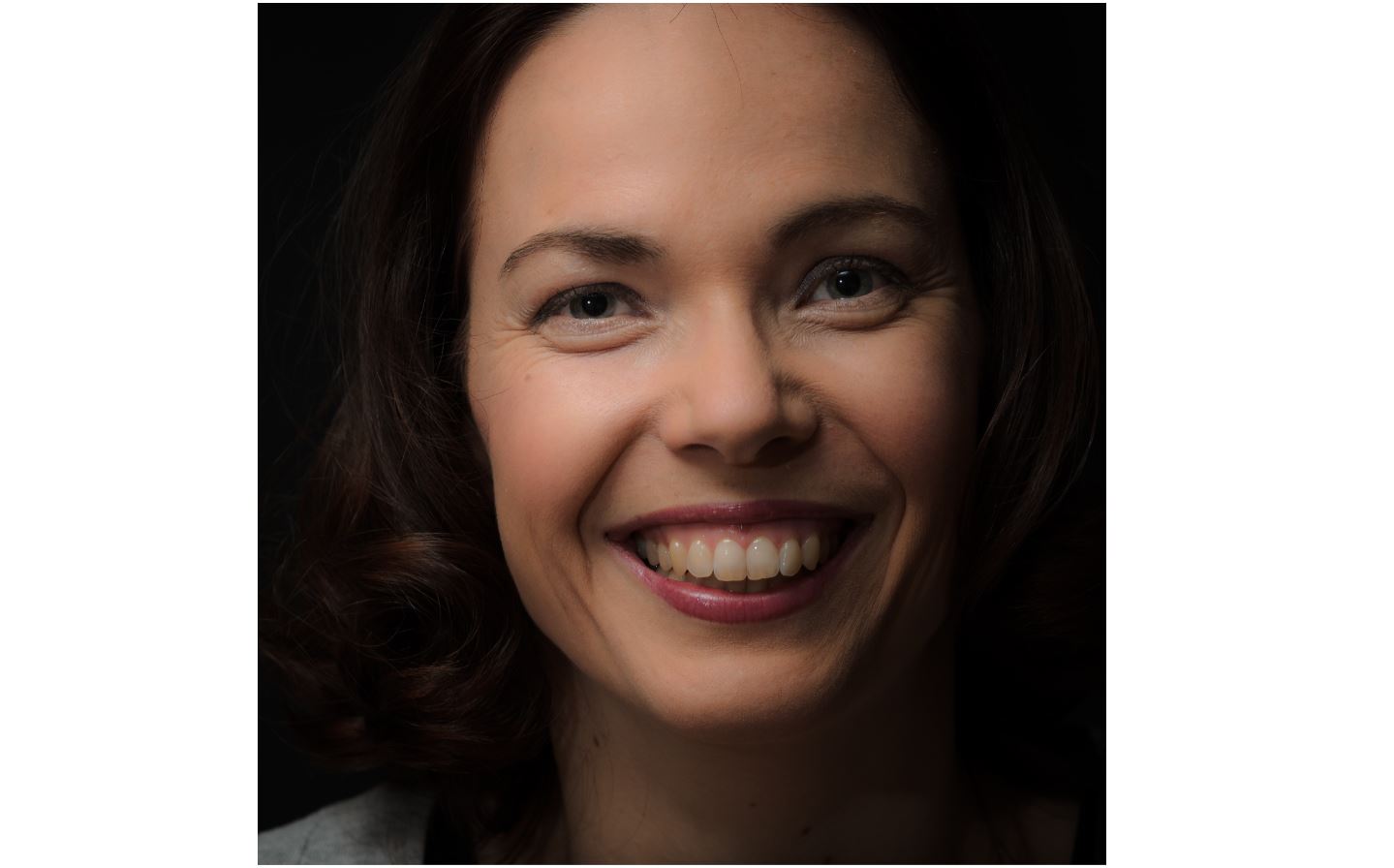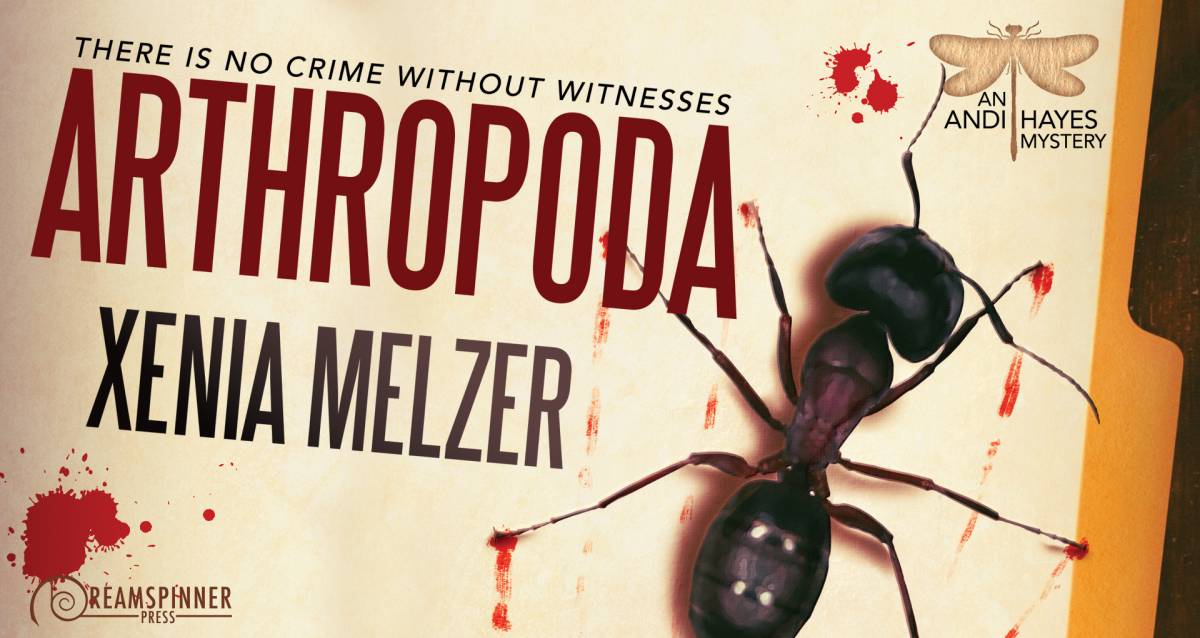I spoke with LGBTQ and fantasy author Xenia Melzer (Germany and US) about writing, parenthood, and her brand new book Arthropoda, released on March 2, 2021:

1. Xenia, I find your approach very unusual and intriguing. You're a native German speaker, but you write and publish in English. You also translate yourself into German. Let me ask you: How did this happen? :-)
First, let me thank you for having me on your blog! I really appreciate it. As to how and why I started writing in English? Weelll… I did start my very first fantasy novel, Gods of War, back then ‚Kriegsgötter‘, in German. When I had two books‘ worth of words, I started searching for a publisher and quickly learned how crowded the market is. Since my main characters were gay in addition to the whole story being quite bloody, my chances of finding a publisher (back in 2014) were close to non-existent. A friend of mine and former US exchange professor at LMU* asked me why I didn’t try to get published in English. I thought about it, researched the market a bit, found out the English speaking market for gay stories was huge compared to what we had in Germany at the time and went for it. To my own surprise, I found a publisher during my first round of sending the manuscript out and I’ve been with Dreamspinner ever since – with a little sidekick with Pride Publishing this year.
As for the translating part – it kind of made sense to translate myself since I know what I wanted to say… which is often a problem with translating. I work as a translator, so I know how hard it can be. Plus, translating my own work means I get additional money for my work which is not the main motivator but also not something to be sneezed upon.
2. Why do you write what you write?
That’s a tough one… I wrote my fantasy novel because I wanted something where the main characters were not loveable and perfect but ambigous and at times downright detestable. I wanted to see if I would still love them like I would ‚traditional‘ heroes. I was also bored with the usual male-female pairing and wanted to explore something new. When I started writing Gods of War, I knew very little about the gay romance genre and about the struggles of LGBTQ people in general. My excuse here is that I grew up in the countryside where there was a very firm policy of ‚don’t talk about it‘. Once that world opened up to me, it came with some interesting insights about myself as well, meaning I discovered that I’m demisexual. Anyway, after the first two books of Gods of War were published, I felt the need to stretch my wings a bit and went for a contemporary BDSM love story because that genre holds a deep fascination for me. I’d like to believe my writing improved over the past few years and my interests expanded even more, leading to the first book in a paranormal series called Demon’s Wish. This is the first comedy I wrote and I’m glad people seem to like it. On March 2nd my first detective novel comes out and I’m biting my nails to see how people are going to receive it. I’ve always admired authors who can put together a complicated plot where the murderer turns out to be somebody nobody thought of. It’s hard to do and it took me a few re-writes, but I think Arthropoda has turned out mysterious enough…
3. And how do you write? This will be especially interesting to other authors. Do you have a particular method or is every book different?
I write in patches. And in lines. Ok, I start out with an idea, write down a plot with bullet points, for the detective novels I draw mind-maps, then I start writing following those bullet points until one of my characters (or all) decides to throw the whole thing and then I wing it. Sometimes I have ideas for certain scenes, write them down and then build the rest oft he story around those scenes. Demon’s Wish was the first book where I followed specific instructions from a publisher so that the story would fit a certain line. In the end, the specifics were changed and the story didn’t fit the line anymore so I offered it to another publisher. The experience of following strict instructions has definitely helped me to improve as an author though.
4. Is there a particular weather or season during which you write best? If so, why?
No. I do my best writing when I really should be doing something else, normally sleeping, LOL.
5. You have two kids, but still you regularly publish books. Tell us, how do you manage it? Are you scheduling writing time or do you just write in whatever minute possible?
I used to write whenever I found a minute to spare. With Covid-19 and homeschooling, I’ve changed my MO a bit. Now I have scheduled times where I write and I try to stick to them. It’s not always easy and there are days when I fail completely, but I’m getting there.
6. Maybe this is a bit personal, but I'm intrigued: Did motherhood change your way of writing, or influence your literary voice?
Oh, it definitely did. My first BDSM romance, A Dom and His Writer is about an established couple who suddenly has a baby dropped in their laps. It’s a bit dramatic at times and I had readers who said the negative reaction of one of the characters to the baby is absolutely unrealistic, as are some of the things the baby and the other character do, while all the readers who are parents themselves said the story portrays parenthood pretty accurately. So yes, motherhood influenced my writing. Though not as much as Covid-19 did. Since the pandemic started, I’ve grown softer. Some of the more gruesome scenes for the fantasy books that I had written before this whole mess started are now too much for me and I seriously contemplated deleting some of them. I didn’t, but it was hard.
7. How do you do it: How do you keep your mind so open? I'm constantly amazed at how little mental blocks or self-induced obstacles you seem to have. You seem to possess an inner freedom others would relish as well. Were you just born this way or is there something everybody can do to learn it?
Oooh, I’ve got tons of mental blocks. What helps me overcome them is telling myself that as long as it stays in my head, everything’s fine. If an idea survives long enough in my mind to mature to a point where I think it’s fit to see daylight, then I let it out. Demon’s Wish for example was an experiment. I don’t think of myself as overly funny and I wanted to see if I could write a book that was on the light side of things.
8. And back to the book business: What is the difference between the book market in the US and Germany, what do you think? Have you noticed a change during the Corona year 2020?
Well, for LGBTQ topics, the difference are about ten to fifteen years. The German market is just now starting to open itself for it, seeing the huge potential. The English speaking market simply is huge and therefor offers more chances to find an audience. I think the German market is – not in its entriety, but in large parts – still too traditional and slow. When I started sending my manuscript for Gods of War out to US publishers, I was surprised to find they wanted everything digitally. My experience with German publishers was that they wanted the manuscript in printed form… which has changed by now, but back then, many of them still worked that way.
As for Corona, I think there was a definite increase in eBook sales due to people being at home more. It definitely reflects in my sales. What I missed were the Leipziger Buchmesse and the chances to get close to readers and discuss topics with them and other authors. I miss that and hopefully, things will get better in 2022.
9. You must have done several readings already, right? What was the strangest question you got asked during one of them?
Uh, I’d have to lie to tell you something interesting. Usually people want to know why I portray characters a certain way or why I bother to write in the gay romance genre at all. Those are perfectly valid questions and until now, I haven’t come across a really strange one… Sorry.
10. What are your favourite authors and why do they mean so much to you?
Ottfried Preußler, The Little Witch. The best children’s book ever.
Neil Gaiman, American Gods and The Ocean at the End of the Lane. Also his graphic novels. I love the story building in his books and the twists at the end.
Terry Prattchet. The Discworld novels, Good Omens. A genius who has left us too soon.
11. Your new book, the detective novel Arthropoda, will be released in March. What inspired you to write it, and why should we read it?
I saw a documentary on TV how insects perceive the world differently from us. It was very fascinating and then my brain wanted to know what it would be like to be linked to them and see the world through their eyes. In that instant, Andi Hayes was born. As to why you should read the book – anything an author says in answer to such a question always sounds like tutting one’s own horn, but I think you should read it because I tried to capture the beauty and the struggles that come with seeing the world from different angles. Also, the story is thrilling or so my editor told me and I hope he’s not lying, ha, ha!
Thanks for your time, Xenia, it was a delight!
* Ludwig Maximilians University in Munich
Links
Website: https://www.xeniamelzer.com/
Facebook: https://www.facebook.com/xeniamelzer/
Publisher: https://www.dreamspinnerpress.com/books/arthropoda-by-xenia-melzer-11824-b
Amazon: https://amzn.to/B08SFL6SL2
(My recommendation: By it directly off the publisher, if possible. Good for both publisher and author.)


